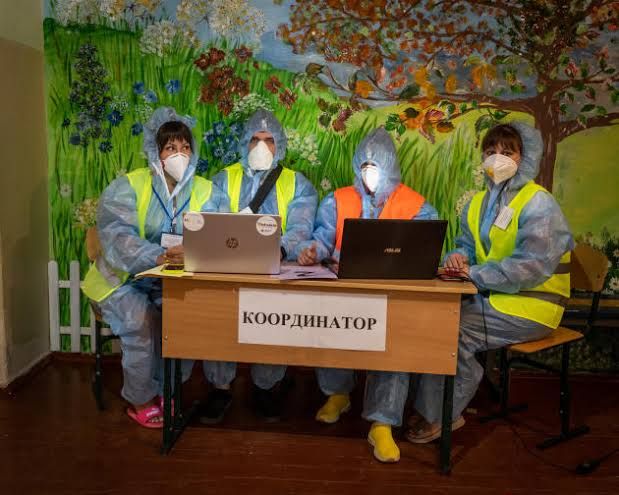In Zaporizhia, the Shadow of Chernobyl Looms: Evacuation Drills Amid Nuclear Fear
As the specter of a nuclear disaster looms, the residents of Zaporizhia in southeastern Ukraine find themselves ensnared in an eerie reality, reminiscent of the catastrophic Chernobyl incident. The town is intensifying its training and evacuation drills in anticipation of a possible catastrophe at the Russian-controlled Zaporizhia nuclear power plant.

As the specter of a nuclear disaster looms, the residents of Zaporizhia in southeastern Ukraine find themselves ensnared in an eerie reality, reminiscent of the catastrophic Chernobyl incident. The town is intensifying its training and evacuation drills in anticipation of a possible catastrophe at the Russian-controlled Zaporizhia nuclear power plant.
After 18 months of enduring the grueling war, the citizens of Zaporizhia have become acclimated to the blaring sirens. Once an ominous signal of impending doom, the sirens have now morphed into a part of everyday life, no more unsettling than the creaking noise of a passing tram. However, recently, the siren's tune changed. A different, monstrous tone filled the air, sending chills down the residents' spines. This new siren was not the familiar harbinger of aerial bombings but a warning of a potential catastrophe at the Zaporizhia nuclear power plant.
In the face of this grim possibility, the authorities in Zaporizhia have stepped up their efforts. Over the past week, tests and drills have been ramped up in preparation for a potential atomic alert. On Thursday, June 29, a large-scale drill simulated the evacuation of 168,000 inhabitants from the city's districts most vulnerable to radioactive exposure. In an eerily real scenario, residents, wearing masks and protective overalls, boarded buses, replicating an exodus to a protected area in the western part of the country.
The possibility of a nuclear attack has been a subject of intense concern since the Russian occupation of the power plant. These fears were amplified following Moscow's alleged sabotage of the Kakhovka hydroelectric power station dam, which resulted in fatal floods and an environmental disaster along the Dnipro. Ukrainian President Volodymyr Zelensky intensified the gravity of the situation, revealing on June 22 that intelligence services had information regarding Russia's consideration of a terrorist attack at the Zaporizhia power plant.
The stakes have never been higher, noted Kyrylo Budanov, the head of Ukraine's Main Intelligence Directorate. According to him, Moscow has already planned and approved the scheme to booby-trap the plant. All that is missing now is the military order to commence the operation.
As the sirens wail and the drills persist, the residents of Zaporizhia live in the shadow of a chilling threat. As each day passes, the narrative of their lives becomes more intertwined with the dire prospect of a nuclear disaster.




